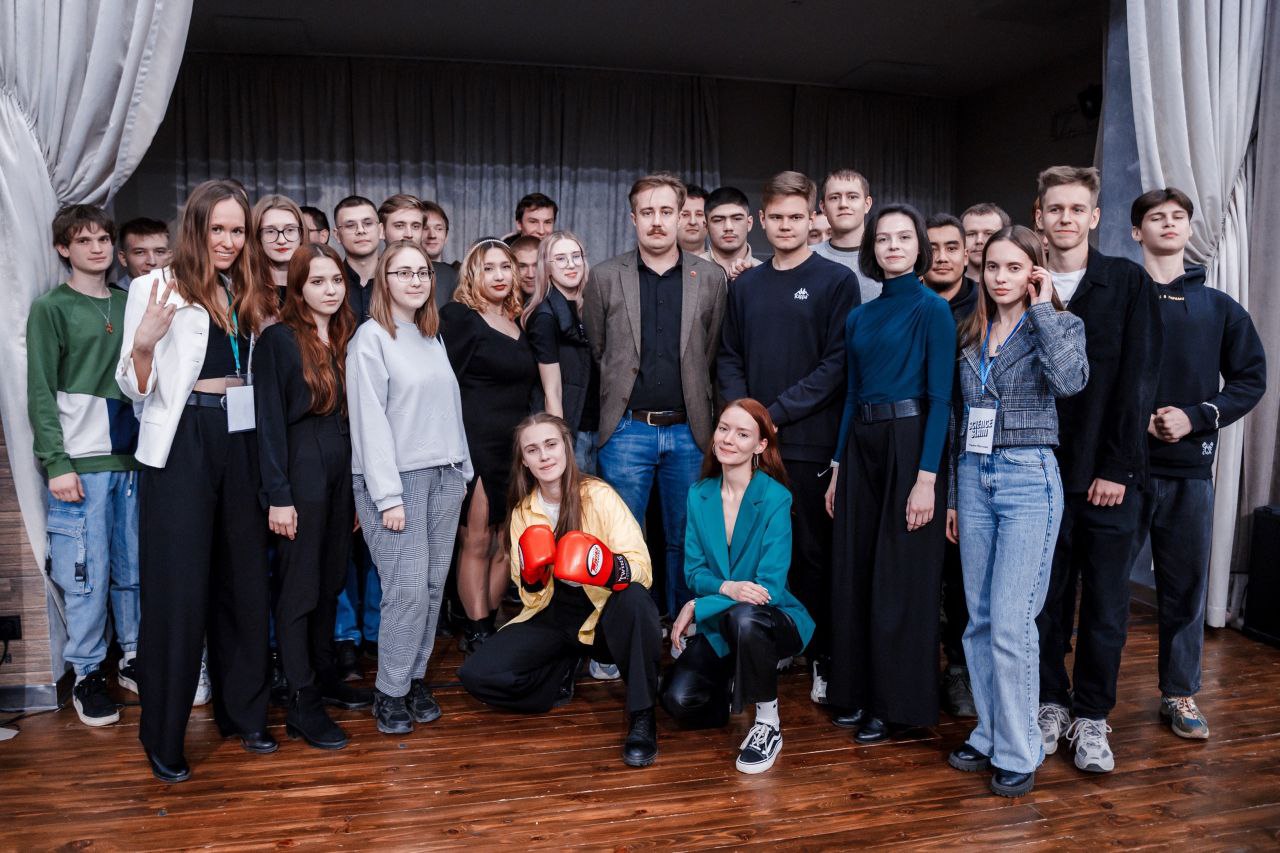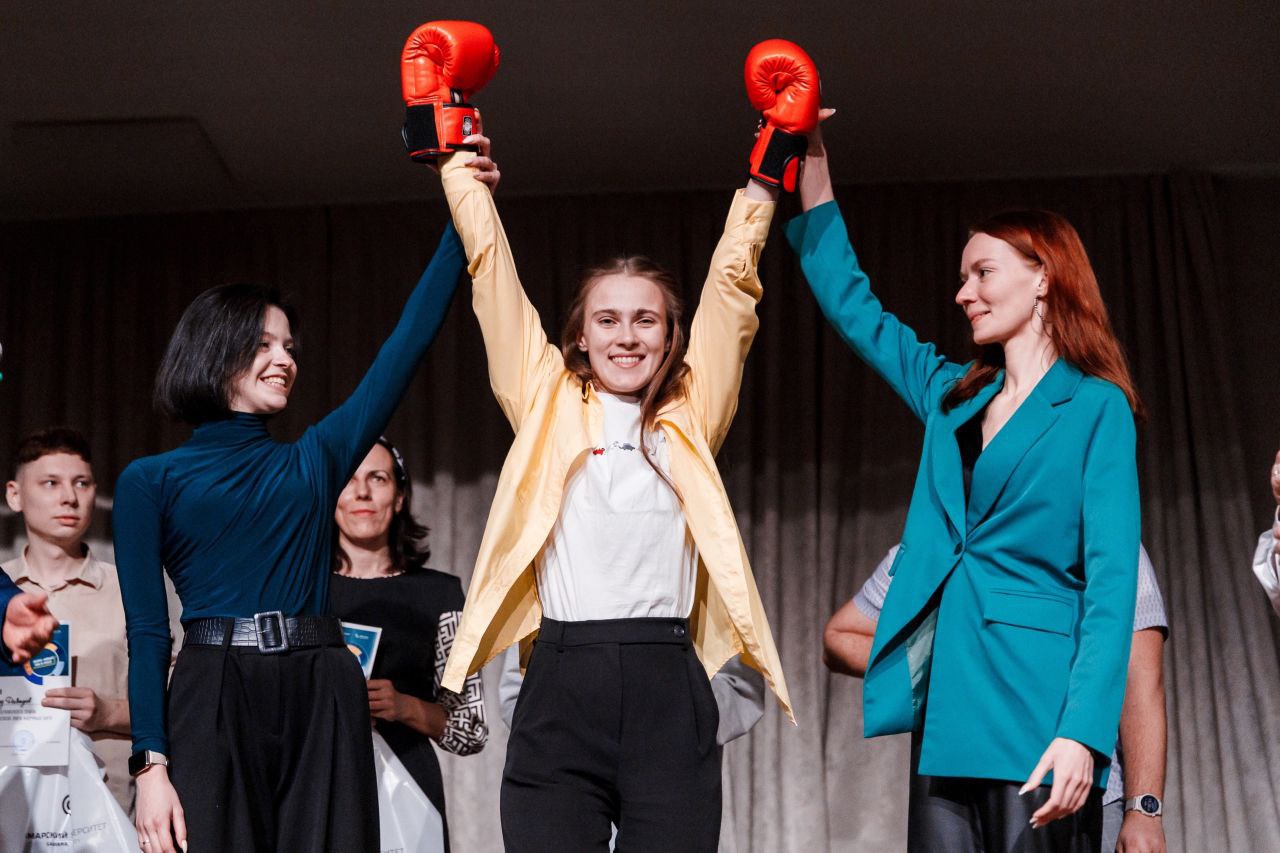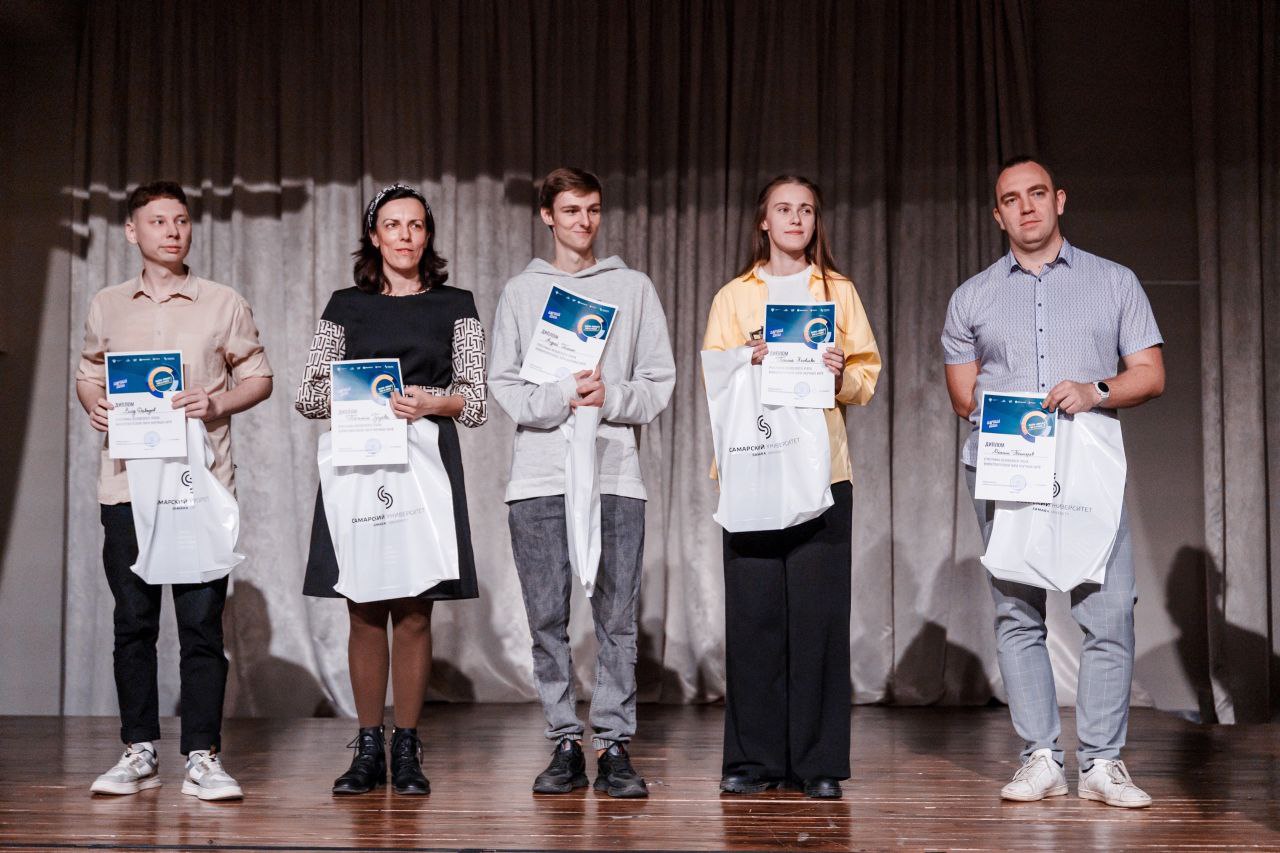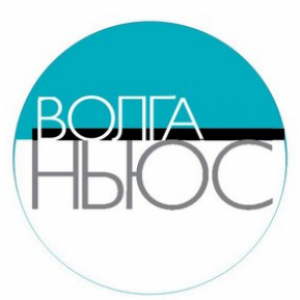As part of the University League of Scientific Battles, a project to develop the Science Slam movement in Russian universities, on October 29 at Samara University, five scientists participated in a batte.

"Scientific battles have been taking place at our University for several years in a row, I attended the last two and I can say with confidence that these are unique events and one of the most exciting and unusual! — says Maria Reznichenko, Head of the Extracurricular Activities Department at Samara University. - Not only young scientists, but also activists, event organizers, creative students — all those who are close to a creative approach to business — are happy to participate in them as spectators."
Science Slam is a battle of an unusual format. Here, scientists talk about their work in a simple and understandable language for the layman, use analogies and examples from life, and joke. The winner is chosen using a noise meter device — it determines the volume of applause. The one who gets the loudest clap from the slammers wins.

Ruslan Pikalov, the organizer of the scientific battle of Samara University, emphasizes the importance of the event for the popularization of science: "The Science Slam format allows you to introduce a wide range of people to the activities and developments of scientists, to convey what they are doing, why they need it and why. Scientific activity is of strategic importance for the Samara region, in connection with which the regional government actively helps young scientists with various grant and scholarship programs, as well as social support measures. A number of major projects are being implemented in the region, including the project of an interuniversity campus designed to develop and enhance the scientific and technological potential of the Samara region. And winning the scientific battle will give you the opportunity to take part in the interregional stage of Science Slam, followed by the opportunity to present your work at the All-Russian level within the framework of the congress of young scientists. But the most important thing is that the event helps to find like-minded people for everyone, regardless of whether you won or not."
This time, the participants presented both technical and humanitarian topics. For example, Tatyana Gugueva, a graduate student at the Institute of Social Sciences and Humanities, told how a modern teacher can find a way out of difficult pedagogical situations with the help of compensatory competence. Polina Yakovleva, a 4th year undergraduate student at the Institute of Aerospace Engineering, introduced the audience to nano- and picosatellites and told how to improve the quality of data transmission from them. Vlad Davydov is a 5th year student at the Institute of Natural and Mathematical Sciences. The student shared the results of his research on the development of an effective catalyst for the electrical recovery of oxygen in a fuel cell. Andrey Golenko, a 5th-year specialist at the Institute of Natural and Mathematical Sciences, spoke about the process of oxidation of p-pyridyl with molecular oxygen based on computational methods of quantum chemistry. And Maxim Tepterev, senior researcher at the Industry Research Laboratory-4, presented the process of alloying aluminum alloys.

The noise meter showed that she won the battle Polina Yakovleva. "To be honest, I'm very surprised," says the student. — The guys have such serious research, they have been working on it for a very long time, and here I am with some kind of antenna in the form of a Latin letter J! I studied at the interuniversity Department of Space Research, which is just engaged in the development of nanosatellites. This is a rather acute problem — antennas are very sensitive to metal, so you need to look for some alternative. It was very interesting to try to tell in simple language to those who may not understand this topic at all."
Within the framework of the University League, more than 80 university battles will be held, according to the results of which the winners will be selected to participate in six regional stages. And the top six will present their research at the All-Russian University Scientific Battle as part of the Congress of Young Scientists.
Source: volga.news
